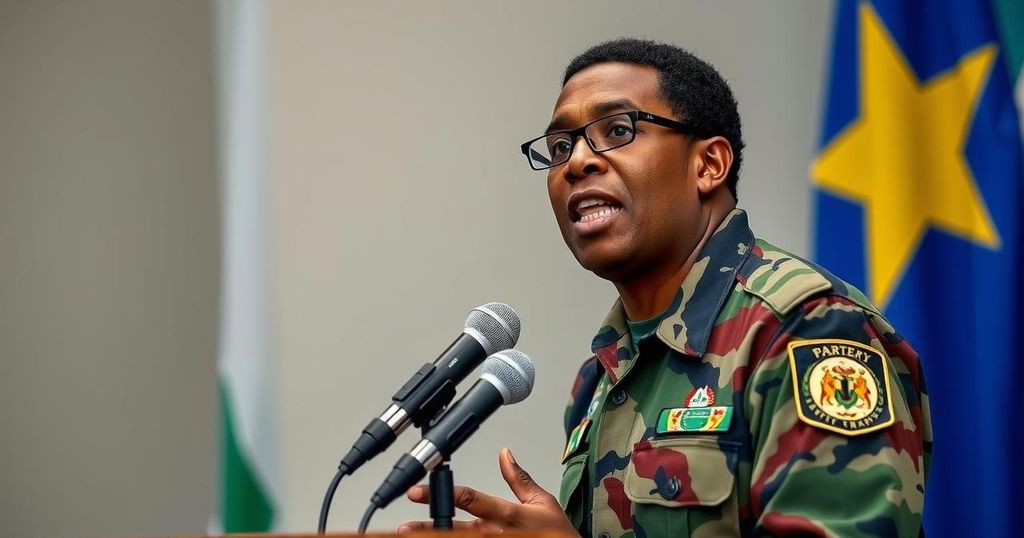Yolande Makolo, spokesperson for the Government of Rwanda, announced there are no Rwandan troops in Maputo amidst ongoing protests related to disputed election results. The Rwandan forces are solely active in Cabo Delgado province against extremist threats. The protests, led by Venâncio Mondlane, have resulted in police intervention and fatalities, prompting calls for a general strike.
On Sunday, Yolande Makolo, the spokesperson for the Government of Rwanda, unequivocally stated that there are no Rwandan troops stationed in Maputo, despite circulating rumors indicating otherwise. In a message on her official social media account, she confirmed, “There are no Rwandan troops in Maputo. Rwandan Security Forces are deployed strictly in Cabo Delgado province, in joint operations with Mozambican forces against extremist Islamist fighters that have been terrorizing residents in the province.” Makolo described the claims regarding the mobilization of Rwandan forces and armored vehicles to Maputo amidst post-election demonstrations as “a lie.” This statement comes in the wake of protests occurring in the Mozambican capital, which have prompted police intervention involving tear gas to disperse crowds. In recent days, the atmosphere in Maputo has shifted towards normalcy, with the city experiencing its first day without riots following three continuous days of unrest linked to the discontent with the recent election results. The protests stem from the results of the October 9 elections, where Daniel Chapo of the ruling Mozambique Liberation Front (Frelimo) was declared the winner with 70.67% of the votes. In contrast, Venâncio Mondlane of the Optimistic Party for the Development of Mozambique (Podemos) garnered 20.32% and has rejected these results, stating that they remain unvalidated and have yet to be officially proclaimed by the Constitutional Council. Mondlane has called for a week of general strikes and demonstrations set to commence on October 31. Interestingly, a contingent of over 2,000 Rwandan soldiers has been in Cabo Delgado since April, assisting in counter-terrorism operations against groups that have plagued the region for several years, particularly those threatening a French natural gas project. This context of military involvement may have contributed to public speculation regarding Rwandan troop presence in the capital. To date, the protests have resulted in at least ten fatalities, numerous injuries, and upwards of 500 arrests, as reported by the Center for Public Integrity, a Mozambican NGO monitoring electoral processes.
The political climate in Mozambique has been charged following the general elections held on October 9, 2023. These elections have sparked significant public discontent, leading to protests primarily organized by supporters of presidential candidate Venâncio Mondlane. The demonstrations have been characterized by clashes with police and calls for nonviolent civil disobedience. Concurrently, rumors of Rwandan military involvement in Maputo have added tension, prompting officials from both governments to clarify the situation. The history of violence and terrorism in Cabo Delgado, where Rwandan troops are deployed, plays a crucial role in understanding the current unrest and the political dynamics at play.
In conclusion, the situation in Mozambique remains tense following the disputed election results, leading to protests and public unrest. Rwandan officials have firmly denied the presence of their troops in the capital, asserting they are solely engaged in operations in Cabo Delgado against terrorist threats. As protests continue, the ramifications of the election are still unfolding, with potential for further demonstrations in the coming weeks.
Original Source: clubofmozambique.com






